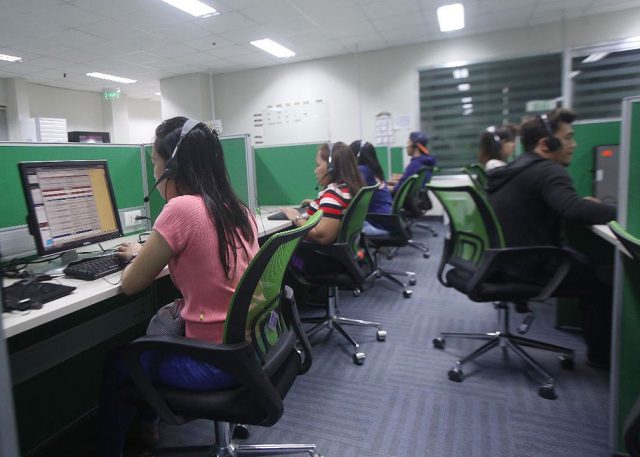Amazon faces landmark monopoly lawsuit by FTC
WASHINGTON – The US Federal Trade Commission filed a long-awaited antitrust lawsuit against Amazon.com on Tuesday and asked the court to consider forcing the online retailer to sell assets as the government accuses Big Tech of monopolizing the most lucrative parts of the internet.
The FTC accused Amazon, a company started in a garage in 1994 and today worth $1.3 trillion, of fighting efforts by sellers on its online marketplace to offer products more cheaply on other platforms. Amazon forces sellers to use its warehouses and delivery services, inflating costs for consumers and sellers, the FTC said.
Amazon is a monopoly and misuses its powers, according to the FTC, which quotes a seller as saying: “We have nowhere else to go and Amazon knows it.”
The lawsuit had been expected after years of complaints that Amazon.com and other tech giants abused their dominance of search, social media and online retailing to become gatekeepers on the most profitable aspects of the internet.
The need to take action against Big Tech has been one of the few ideas that Democrats and Republicans have agreed on, and the FTC chief has been particularly concerned about Amazon‘s power.
The lawsuit, which was joined by 17 state attorneys general, follows a four-year investigation and federal lawsuits filed against Alphabet’s Google and Meta Platforms’ Facebook.
The FTC said that it was asking the court to issue a permanent injunction ordering Amazon to stop its unlawful conduct. The lawsuit was filed in federal court in Seattle, where Amazon is based.
“Left unchecked, Amazon will continue its illegal course of conduct to maintain its monopoly power,” the FTC said in its complaint which asked the court “to put an end to Amazon‘s illegal course of conduct, pry loose Amazon‘s monopolistic control, deny Amazon the fruits of its unlawful practices, and restore the lost promise of competition.”
The FTC complaint asked for the court to consider “any preliminary or permanent equitable relief, including but not limited to structural relief, necessary to restore fair competition.”
Structural relief in antitrust jargon generally means a company sells an asset, such as a part of its business.
In a press briefing, FTC Chair Lina Khan was asked about the idea of breaking up Amazon but declined to discuss it. “At this stage, the focus is really on liability,” she said.
In other antitrust trials, the court first establishes that the company broke the law and then, if needed, discusses how to remedy that.
Amazon said that the FTC lawsuit was wrongheaded and would hurt consumers by leading to higher prices and slower deliveries.
“The practices the FTC is challenging have helped to spur competition and innovation across the retail industry, and have produced greater selection, lower prices, and faster delivery speeds for Amazon customers and greater opportunity for the many businesses that sell in Amazon’s store,” said David Zapolsky, Amazon‘s general counsel. In a blog post, the company noted that it had 500,000 independent sellers on the platform.
Amazon shares, which were down 3.2% before the lawsuit was announced, traded down 4% in late afternoon trade. Some investors saw upside from the lawsuit.
“Either way, the shareholders win. If FTC loses its status quo, if company breaks up, the sum of the parts is greater than the whole as the AWS (cloud) business will command a very high multiple. Analysts will figure this out soon, but for now it’s ‘shoot first, ask questions later,'” said Thomas Hayes, chair at Great Hill Capital.
The FTC said that Amazon punished sellers that sought to offer prices that were lower than Amazon‘s by making it difficult for consumers to find the seller on Amazon‘s platform.
Other allegations include that Amazon gave preference to its own products on its platforms over competitors.
The case, which was filed in the U.S. District Court for the Western District of Washington state, was assigned to John Coughenour, who was nominated to the bench in 1981 by Republican President Ronald Reagan.
‘MONOPOLY POWER’
Ms. Khan said that Amazon had used illegal tactics to fend off companies that would have risen to challenge its monopoly.
“Amazon is now exploiting that monopoly power to harm its customers, both the tens of millions of families that shop on Amazon‘s platform and the hundreds of thousands of sellers that use Amazon to reach them,” she said.
Ms. Khan, while a law student, wrote about Amazon‘s dominance in online retailing for “The Yale Law Journal” and was on the staff of the House committee that wrote a report issued in 2020 that advocated reining in four tech giants: Amazon, Apple, Google and Facebook.
Amazon‘s critics welcomed the lawsuit.
“No corporation has ever centralized this much power across so many crucial sectors. Left unchecked, Amazon’s power to dictate and control threatens the rule of law and our ability to maintain open, democratically governed markets,” said Stacy Mitchell of the Institute for Local Self-Reliance, which has pushed for the government to act against Amazon.
During the Trump administration, which ended in 2021, the Justice Department and FTC opened probes into Google, Facebook, Apple and Amazon.
The Justice Department has sued Google twice – once under Republican Donald Trump regarding its search business and a second time on advertising technology since Democratic President Joe Biden took office. The FTC sued Facebook during the Trump administration and Biden’s FTC has pressed forward with the lawsuit. – Reuters




















